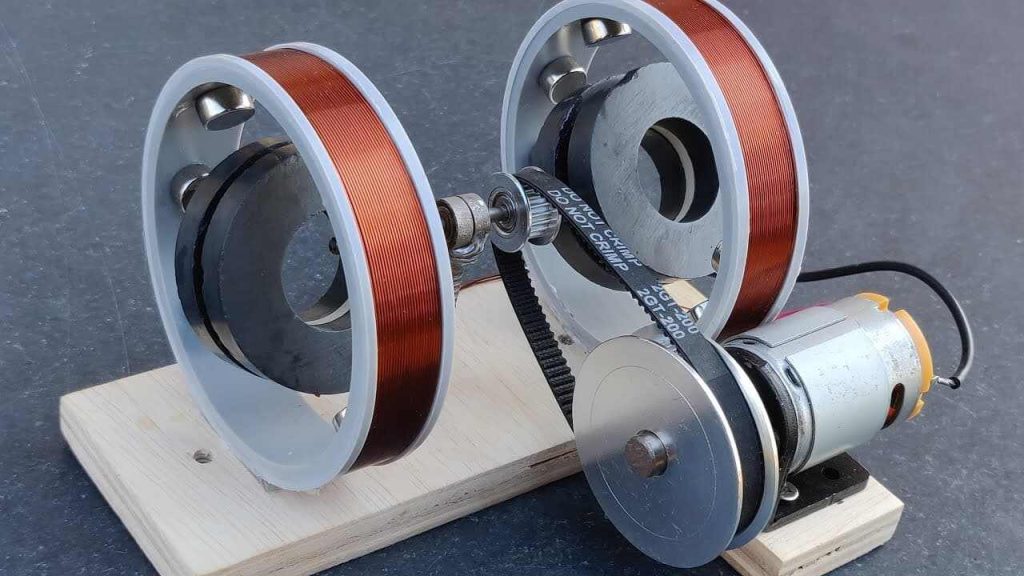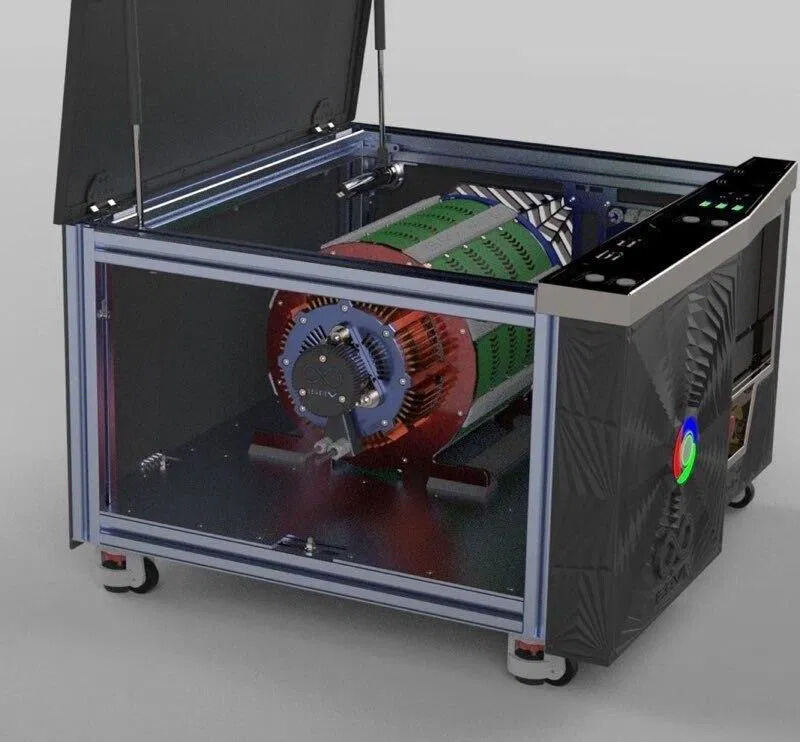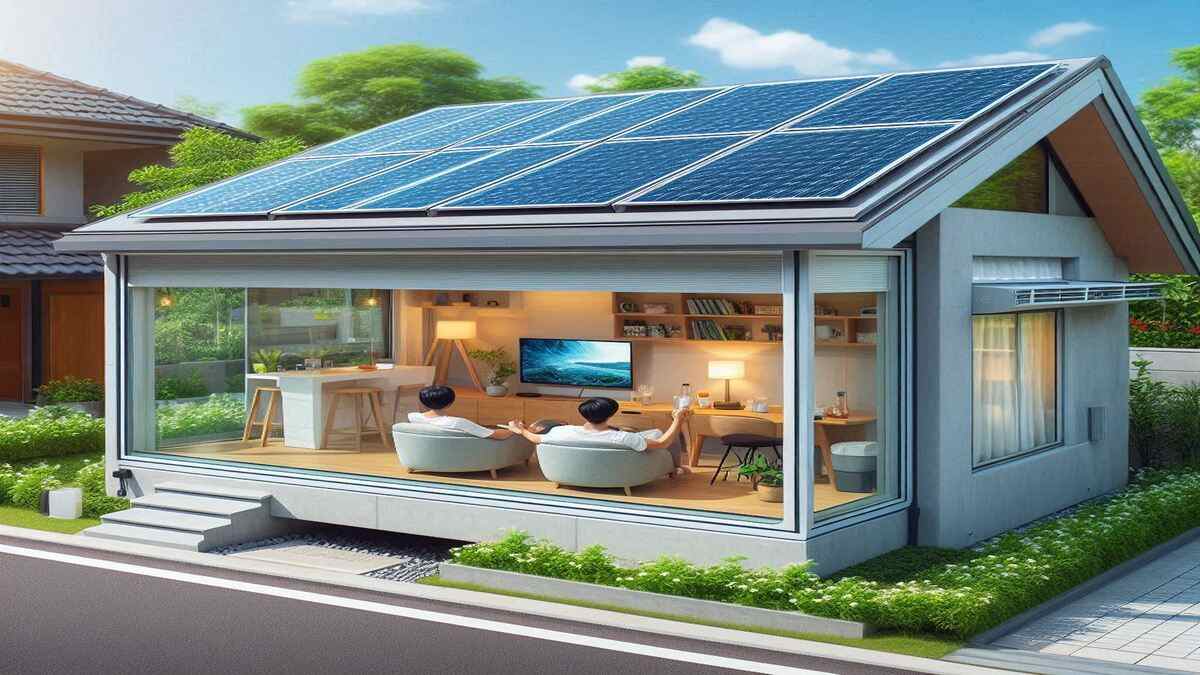Recently, the term “fuelless generator” has become a hot topic in Nigeria, as many are searching for alternative ways to tackle the ongoing challenges with electricity supply. The idea of having a generator that does not require petrol, diesel, or any other form of fuel indeed sounds very appealing. But what exactly is a fuelless generator? How does it work, and is it too good to be true? Let’s break it down in simple terms.
What is a Fuelless Generator?
A fuelless generator, as the name suggests, is a device that generates electricity without the need for traditional fuels like petrol or diesel. Unlike the conventional generators that you might be familiar with, which rely on burning fuel to produce power, a fuelless generator uses alternative sources of energy. This could include renewable energy sources like solar power, or other technologies that don’t require any fuel at all.
How Does a Fuelless Generator Work?
To understand how a fuelless generator works, we need to explore some of the basic technologies behind them. There are different types of fuelless generators, but they generally fall into two main categories:
1. Solar-Powered Generators:

- Solar-powered generators are the most common type of fuelless generators. They work by converting sunlight into electricity using solar panels. The solar panels capture sunlight and convert it into direct current (DC) electricity. This DC electricity is then stored in a battery, which can later be converted into alternating current (AC) using an inverter to power your home appliances.
- This type of generator is most effective in areas with abundant sunlight, which makes it particularly suitable for Nigeria, where the sun shines brightly for most of the year.
2. Magnetic Generators:

- A magnetic generator operates on the principle of magnetic fields and kinetic energy. It uses magnets to create a continuous motion, which then drives a turbine or rotor to generate electricity. The idea here is that the magnetic force creates a perpetual motion, which means the generator can produce power continuously without the need for any external fuel source.

- However, it’s important to note that while magnetic generators sound promising, the technology is still in its infancy and is not yet widely available or proven to be reliable on a large scale.
Questions You Might Want to Ask
Are Fuelless Generators Truly Fuelless?
Yes, fuelless generators do not require traditional fuels like petrol, diesel, or gas. However, they may still need an initial energy source, such as sunlight in the case of solar-powered generators. For magnetic generators, once they start, they should ideally keep running without any additional input. But remember, every machine needs maintenance, and the initial cost can be high.
How Much Do Fuelless Generators Cost in Nigeria?
The cost of a fuelless generator can vary depending on the type, brand, and capacity. Solar-powered generators can range from ₦150,000 to ₦2,000,000 or more, depending on the size of the solar panels and the capacity of the battery. Magnetic generators, though not widely available, could be more expensive due to the complexity of the technology. However, while the initial cost might be high, the long-term savings on fuel can make it a worthwhile investment.
How Long Can a Fuelless Generator Last?
The lifespan of a fuelless generator depends on the type and how well it’s maintained. Solar-powered generators, for instance, can last for over 10 years if the solar panels and batteries are properly maintained. The solar panels themselves often come with warranties of up to 25 years. For magnetic generators, the technology is still new, so it’s hard to say how long they will last, but regular maintenance is key to longevity.
Can a Fuelless Generator Power an Entire House?
Yes, a fuelless generator can power an entire house, but it depends on the capacity of the generator. For a small or medium-sized home, a solar-powered generator with a good battery capacity can provide enough power for lights, fans, a refrigerator, and some electronics. However, for larger homes or if you want to power more energy-intensive appliances like air conditioners, you might need a larger system or multiple units.
What Are the Advantages of Fuelless Generators?
- No Fuel Costs: Since they don’t require petrol or diesel, you save money on fuel.
- Environmentally Friendly: Fuelless generators don’t produce harmful emissions, making them better for the environment.
- Low Maintenance: Without an engine, there are fewer parts to maintain or repair.
- Silent Operation: Fuelless generators are generally quieter than traditional generators, especially solar-powered ones.
Are There Any Disadvantages?
- High Initial Cost: The initial cost of purchasing a fuelless generator, especially a solar-powered one, can be high.
- Weather Dependent: For solar-powered generators, the efficiency can be affected by weather conditions. On cloudy days, less energy is generated.
- Technology Limitations: Some types of fuelless generators, like magnetic generators, are still not fully proven or widely available.
Can a Fuelless Generator Work in Urban Areas with Little Sunlight?
Yes, but with some limitations. If you are relying on a solar-powered generator, it will generate less electricity in areas with little sunlight. However, you can still store the energy collected during sunny days in the battery for use later. In such cases, it might be necessary to have a larger battery or a backup energy source.
How Do I Maintain a Fuelless Generator?
- Solar-Powered Generators: Regularly clean the solar panels to ensure they are free of dust and debris that could block sunlight. Check the battery’s health periodically and replace it when necessary.
- Magnetic Generators: If you have a magnetic generator, ensure that the moving parts are lubricated and inspect the magnets and wiring for any wear and tear.
Conclusion
Fuelless generators offer a promising alternative to traditional generators, especially in a country like Nigeria where power supply issues are common. While the technology might seem new or even too good to be true, solar-powered generators are already proving to be effective and reliable for many households. Magnetic generators, while still emerging, could revolutionize the way we think about power in the future.
For now, if you’re tired of spending on fuel or dealing with noisy generators, investing in a fuelless generator could be a wise decision. It’s an investment not just in your convenience but also in a cleaner and more sustainable future.
Remember, as with any technology, it’s important to do your research and choose a solution that best fits your needs and budget.
